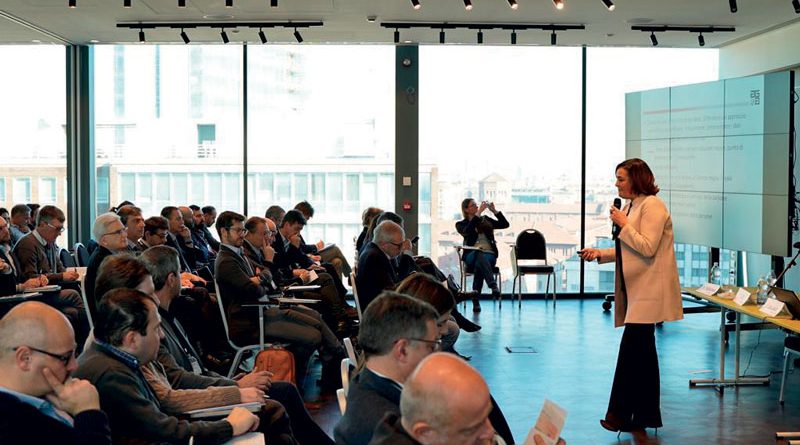The Value Chain Changes in the Digitization Era
The stories told by a series of best practices involving companies such as A2A, Ansaldo Energia, CNH Industrial, Comau, Electrolux and I-Care brought to a close the 2018 edition of the National Quality Campaign promoted by Gruppo Galgano. The conference allowed participants to talk about the efforts to be made in order to promote, within the companies, digital transformation processes. At the same time highlighting the inevitability and relevance of such process.
by Laura Alberelli
The “Quality 4.0. Digital evolution in the value chain of the industrial sector” congress, held in Milan in February officially brought to a close the 2018 edition of the National Quality Campaign. The meeting was very successful in terms of attendance, thanks to the topics dealt with and the first-hand testimony by such important companies as A2A, Ansaldo Energia, CNH Industrial, Comau (Gruppo FCA), Electrolux, I-Care.
The aim was trying to provide an answer to important questions by giving voice to corporate best practices, which in turn are facing the “challenge” set by Quality 4. in the different corporate processes (product development, production processes, supply chain, personnel organization, service and after-sales activities).
The works were opened by Mariacristina Galgano, Managing Director of the Galgano Group, one of the best-known Italian consulting and managerial training concerns with over 56 years of experience accrued in the industry. “The Operating Culture of Quality is forwarded by means of this working method: considering problems as treasures, mistakes as sources of learning, standardization in every activity which requires it, a scientific approach at every corporate level, acknowledgment of the work group, focus on processes. Certainly, the digital change requires that all companies learn how to use new technologies in order to offer new services and digitize their processes. All of this requires a considerable, continuous and in-depth learning effort. Companies are well aware of the need to face this challenge”, Mariacristina Galgano remarked.
Extending the benefits of digital technology to the supply chain
According to the experience of Luca Manuelli, Chief Digital Officer, Ansaldo Energia (the company which, along with the Galgano Group, organized the Congress, whose first edition was held in Genoa), “focusing on human capital as the basis of digital change is a qualifying element of the strategic development of Ansaldo Energia which allowed our Genoa Factory to be selected as the first Lighthouse Plant of the Enterprise 4.0 Plan. The development of appropriate skills to apply the new technologies in the best way will also be addressed with the support of START 4.0, one of the eight qualified Competence Centers of the Ministry of Industry an Economic Development of which Ansaldo Energia is one of the founder partners. The extension of the advantages of digital technology to the supply chain, which includes Italian SMEs, is a further aim pursued by Ansaldo Energia by means of the AENet 4.0 Program supported by Confindustria’s Digital Innovation Hubs network”.
Shifting from reactive to proactive behaviour
According to Enrica Rita Vaccarino, Reliability Engineer Manager & Data Analytics Engineer EMEA/APAC, CNH INDUSTRIAL, “at CNH Industrial the digitization of quality is constantly growing especially through telematics. This is done to provide the utmost guarantee to our clients, who do business using our products, that these will be fully available. Talking about Digital Innovation in CNH is complex as it involves many sectors. In our group we follow the reliability programs of new products which are being developed in the EMEA and APAC regions; we did not always have a “datum” culture but we never stopped the continuous improvement of our methods by creating new opportunities to add value to the company. We identified some areas where we could find information or provide new value to our company (such as database warranty and telematics data (multi-dimensional analysis data bases which are growing fast) and we decided to adopt the SAS platform, Visual Analytics, which allows us for instance to prepare dynamic reports to understand the connections on different clusters at mission level. We are therefore integrating telematics and big data, even though we have margins for growth. Our global aim is to go from a reactive to a proactive behaviour, that is, anticipating the future by means of increasingly refined and reliable models. Anticipating the future rather than reacting to what is going on. Currently the skills present within our team are sufficient and constantly on the increase. We reinforced our team with young resources with whom our coaching is in touch every day”.
Increasing the quality of processes thanks to digitization
Maurizio Cremonini, Comau Head of Marketing and Digital Initiatives Platform, in his speech underlined the importance of digitization highlighting the multiple advantages deriving from its use. “The use of digital products and technologies allows companies in the manufacturing industry to obtain significant advantages for its productivity. Digitization allows to increase the quality of work processes. By means of a constant and complete monitoring of work systems, any production stand-by may be foreseen, thereby containing internal management and maintenance costs. Leaner work processes allow to reduce time-to-market significantly, thereby improving global productivity. Comau supports companies, whichever their size and sector may be, wishing to innovate their production processes with the 4.0 concept in mind, with dedicated solutions”.
“Today Comau – added Mr Cremonini – is completing the second phase of its transformation process. The digitization process must necessarily occur one step at a time, following a gradual path, but our company is ready to provide clients with the necessary support to apply digital manufacturing to their production processes”.
The true challenge is learning how to learn
As Maurizio Cremonini underlined, the change requested by digitization must occur gradually, step by step; it should start at the vertex and reach, flowing downwards, the base of the organizational pyramid. “Change Management should be considered a critical success factor in an ongoing digital transformation” Emilia Rio, Human Resource Manager, HSE, Organization and Change Management, A2A, underlined. She added: “Digitization is destined to revolutionize roles, profiles and assignments of persons in the company. This implies, on one hand, the creation of news professional profiles and on the other hand the decrease of a certain type of jobs (I am referring to professional profiles with simpler assignments, to those who carry out strictly manual jobs and with minimum added value). This will only be hard on those who will not understand the importance of evolving and learning. The real challenge which digitization brings with it is therefore learning how to learn. Probably, all of this will also require a redefinition of the current school and training systems. We are living in very interesting times, where what was updated yesterday is no longer so today, and what will be updated tomorrow will no longer be within a few years”.
The last speeches were held by Emanuele Quarin, Director, Digital & Lean Transformation, EMEA at Electrolux, who presented the “Porcia 4.0 Factory “ within a logic of digital transformation supporting Manufacturing and Supply Chain processes, and by Giulia Baccarin, Co-Founder & Managing Director, I-CARE ITALIA, who highlighted that “intelligence and algorithms are not synonyms. Equal algorithms with different data bases give rise to different intelligence. Domain competence is the real driver which qualifies an artificial intelligence which is useful for mankind”.

